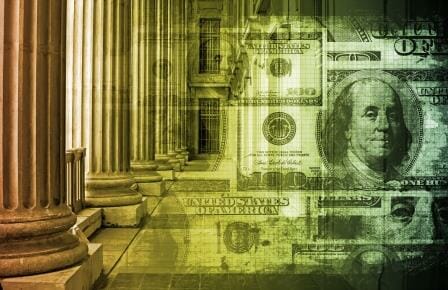The IMF asked the governments not to withdraw the economic aid that already began. Thanks to public spending, the restriction of production-consumption would heal and generate compensations.
The International Monetary Fund (IMF) recommended that planners around the world should adopt an expansive fiscal and monetary policy; this policy would recover and reactivate their respective economies in the face of the global crisis resulting from the Covid-19 pandemic.
The managing director of the IMF, Kristalina Georgieva took part, last Friday, in “the Future of economic growth” conference, this conference is part of the XII edition of the Gaidar Economic Forum, An event that Russia organizes.
“In terms of policies for the present moment, although it is unusual on the part of the IMF, my message is ‘please, spend’, spend as much as you can, and then spend a little more,” said the official, according to a Reuters dispatch.
Regarding the aid programs by various countries, the Bulgarian economist asked the governments not to withdraw such aid.
“We still have to be very careful and not to withdraw support prematurely. Because if we do, we will have a wave of insolvencies, and structural unemployment that would be very difficult to reverse. ”Georgieva said.
On the other hand, Georgieva shows an admissive point of view about the fact that qualitative relaxation policies can help increase the economic breach between rich and poor.
“The accommodative monetary policy is good for the economy as a whole, but it tends to favor the richest, such as those who work in the digital sector, who are already present in the financial economy,” said the official.
Bitcoin Could Result in a Winner when it Comes to Monetary Expansion
In a speech during the IMF’s annual meeting, Georgieva noted that the global health crisis that COVID-19 unleashed already claimed more than a million lives and the numbers keep reaching high peaks.
Besides, among the negative impacts for 2021, the crisis will require constant resources of about USD 11 trillion, a figure that can suffer a potential surpassing, according to the official.
Continued fiscal easing, keeping interest rates low, and continuing to print unsupported money would imply that bitcoin (BTC) will maintain its attractiveness to investors, as a hedge against an increasingly weak dollar.
These past days bitcoin’s been trading at $ 36,300, this figure marks a 20.3% rebound from the beginning of the year, and 303% from the start of the current bull cycle at the end of July 2020.
According to analysts, these increases are happening due to the posture of institutional investors that include investment banks and other important organizations that see a possible new peak of at least $ 50,000 in the months to come.
On December 16, the cryptocurrency surpassed the record of $ 20,000 for the first time and reached $ 21,295. From that moment on, it went to an unstoppable climbing.
By: Jenson Nuñez











